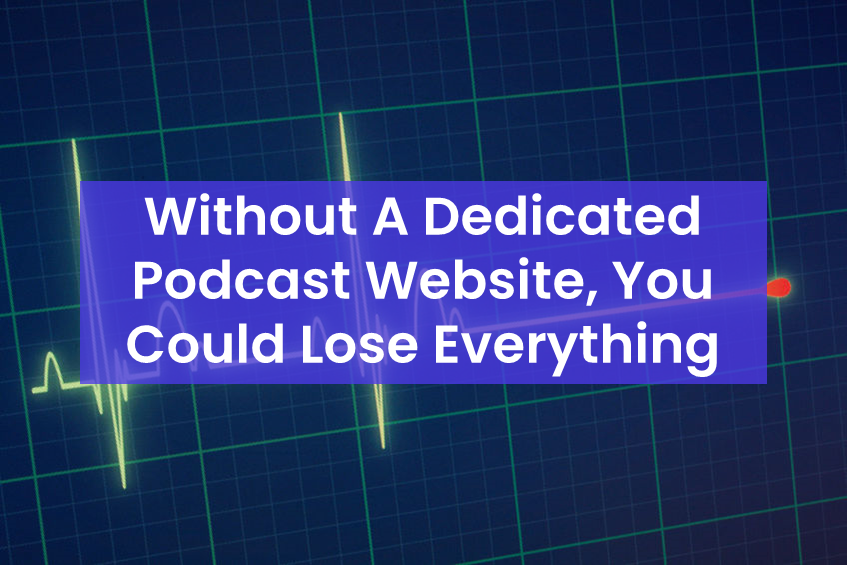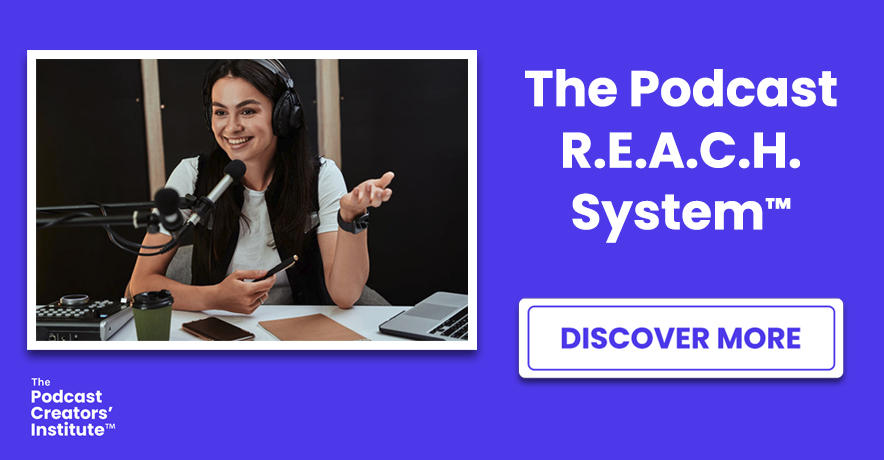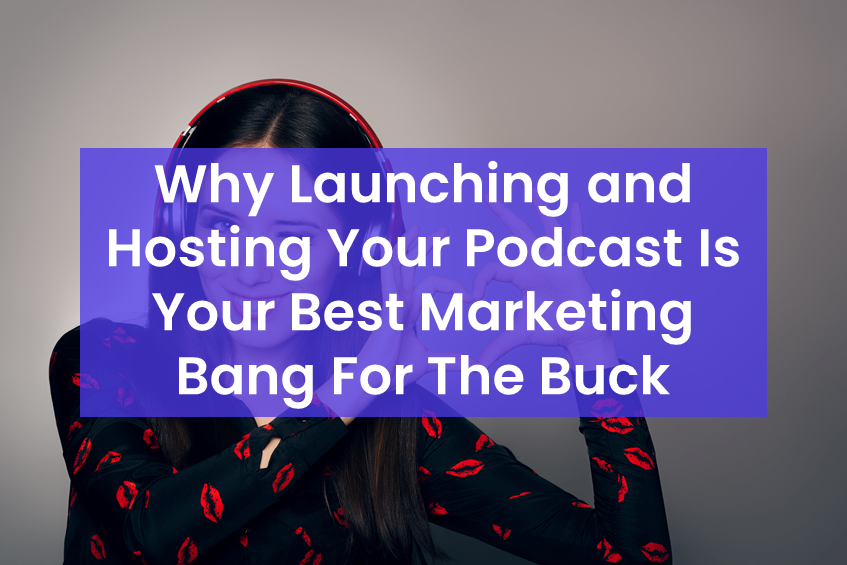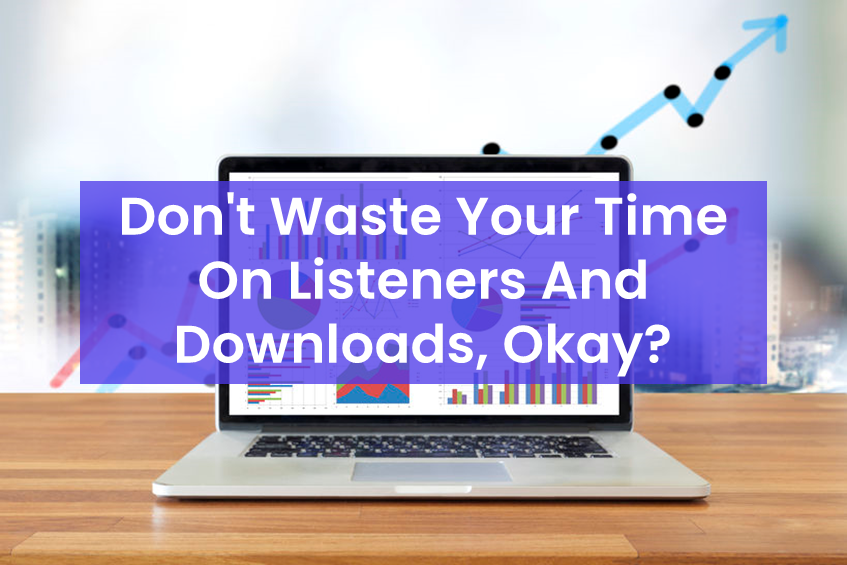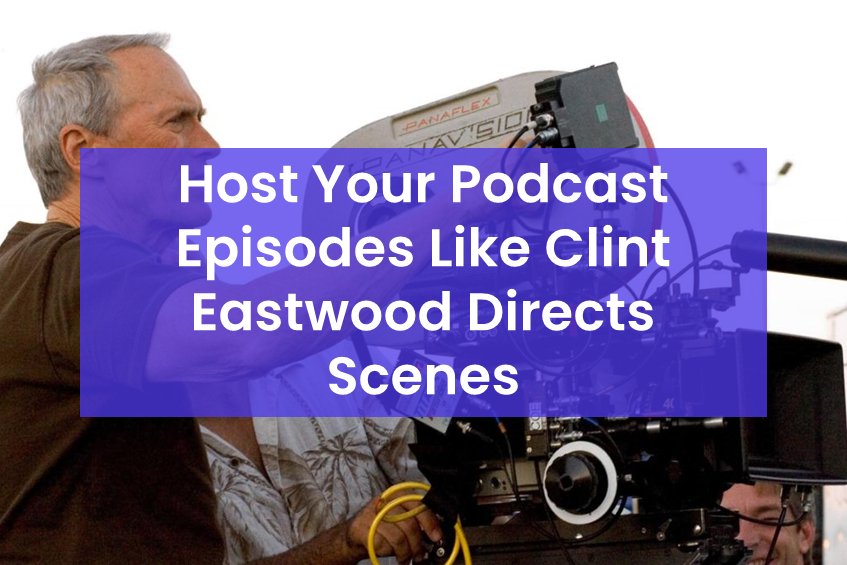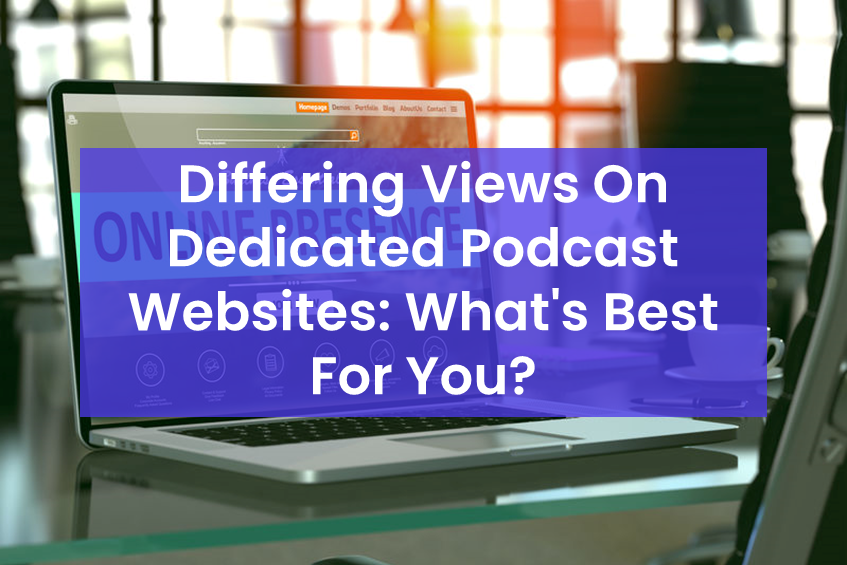Some podcast hosts believe they don’t need a separate website to host their show.
“They” have been told it’s “easy” to “simply” do the following:
Add their episodes as blog posts assigned to a “podcast” or similar category on their main company website
Use the free website that many of the streaming-file hosts provide
Exclusively tell their listeners to follow them on a syndicator (Apple Podcasts, Google Podcasts, Spotify, Audible, YouTube, and the others) – the point being these are all spaces the podcast host does not own and does not control
Post the episodes on social media and tell people to follow them on social media channels
All those options sound so much easier, yes?
And sure, doing some of these things IN CONJUNCTION WITH having a dedicated website to launch and host your podcast can vastly expand your reach.
But candidly…
The Above “Shortcuts” (With No Dedicated Podcast Website) Will Stop You, Slow You Down, And Get In Your Way
Without a separate, dedicated website for your show, right off the bat you’re losing control over how your show and its episodes appear in search engines, including some ability to increase its rankings.
You typically won’t be able to install lead-generators, such as opt-in boxes and lightboxes, that build a subscriber database you can nurture through the subsequent website conversion conversation.
Then, you lose all flexibility (and usually ability) to install banner ads and sidebar ads that bring clicks to your own products, services, and solutions. In fact, you might HAVE to display whatever ads that service puts on your page – which may be for your competitors!
Also, forget about selling space to advertisers in the form of banner ads and sidebar ads.
Your Brand Will Take A Big Hit, Too
NOT having a dedicated website for your podcast means losing the ability to rank your URL and use your show’s name as a search phrase listeners can easily find.
Also, you usually lose control over how your “graph image” and the title and description of the episode appear on social media shares.
This means you can’t use the graph displays as “mini-ads”, and you’ll probably lose clicks because they’ll look amateurish and/or boring.
Overall, you’ll look like just like this sort of amateur, or someone who doesn’t love their show enough to build presence upon it.
While You “Save” A Couple Bucks (Perhaps), It Could Cost You EVERYTHING
Referring your listeners to an external website or syndicator as your “platform” means you could lose everything if you get kicked off that network or deplatformed.
What if someone (possibly one of your interview guests) complains about one of your episodes, and that external provider just shuts down your entire show?
The provider could ban you and then refuse to explain why, deny you an appeal, or choose to not even bother communicating with you.
Or what if you need to change providers for your file hosting because something better comes along?
Or the external platform goes out of business?
I agree, that’s a lot to think about.
Now let’s turn the tables and look at why your podcast deserves (and requires) its own dedicated website.


